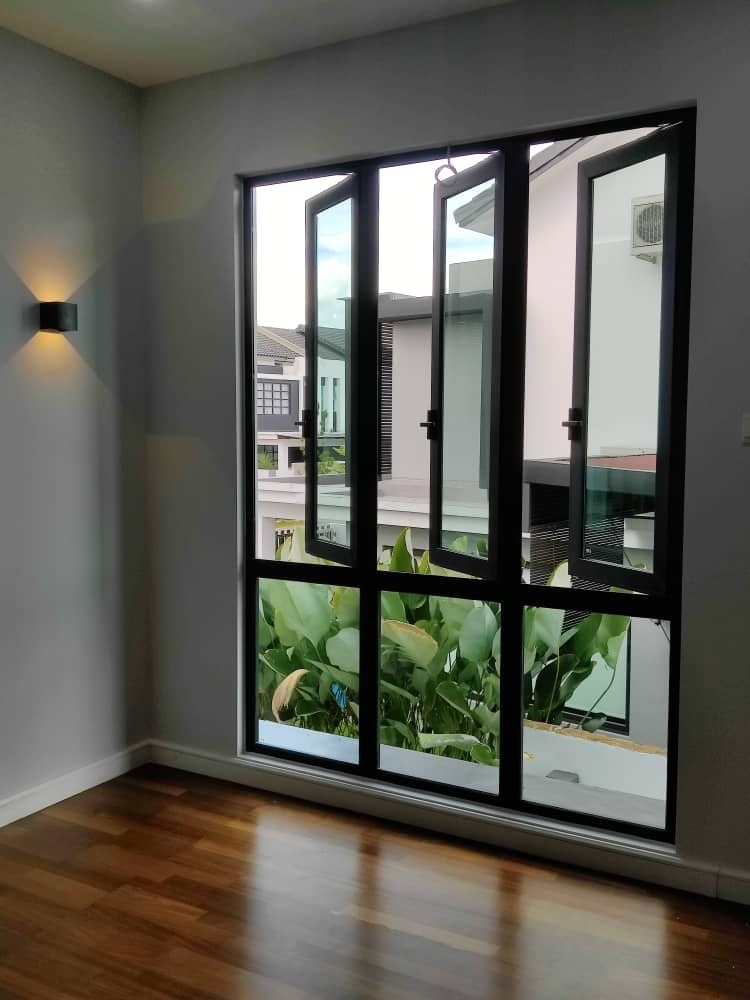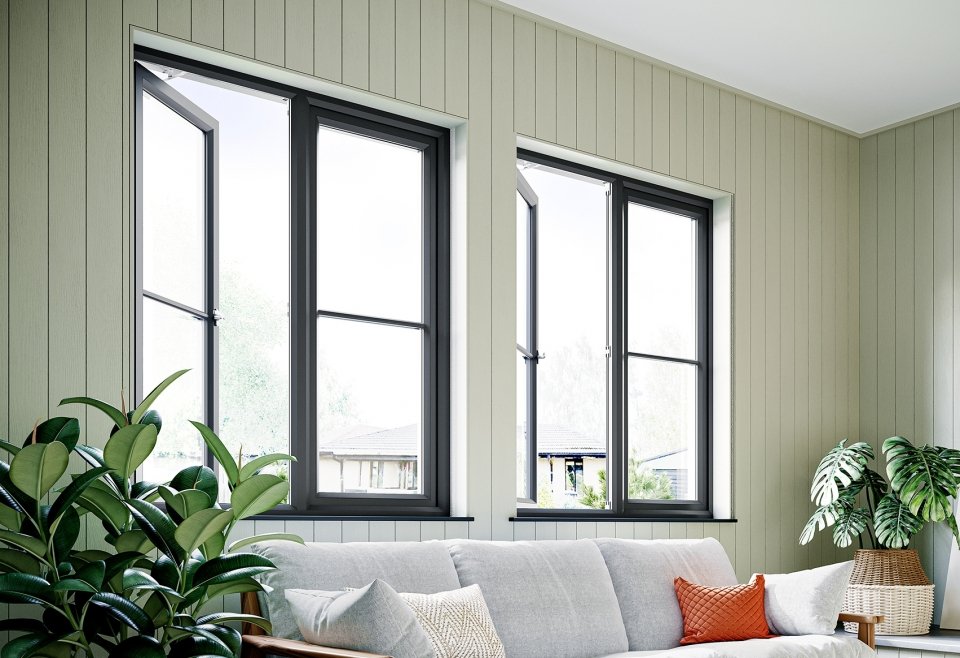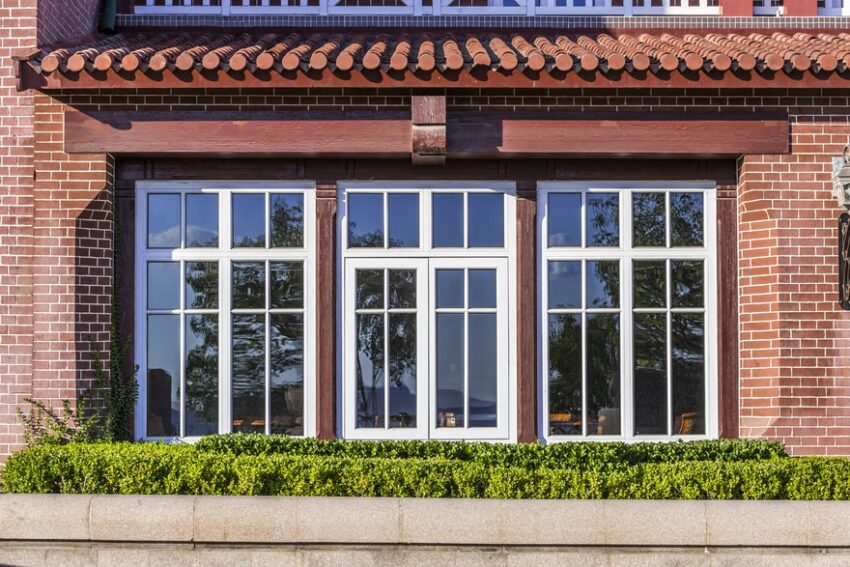Casement windows are single-pane or multi-pane units hinged on one side, opening outward with a crank or lever. Unlike sliding or double-hung windows, casements seal firmly against their frame when closed, creating one of the tightest weatherproof seals among window types.
5 Reasons to Choose Casement Windows
- Superior Ventilation
Because casements open fully, they catch breezes from any direction—especially when installed in pairs. Position casement windows across from each other for a natural “wind tunnel” effect that cools your home without running the air conditioning. - Airtight Energy Efficiency
When closed, the sash presses firmly into the frame’s weatherstripping, minimizing drafts and heat transfer. Many ENERGY STAR®-rated casement windows can lower heating and cooling costs by up to 15%. - Unobstructed Views
With no center muntin or rail dividing the opening, casement windows maximize daylight and sightlines. Whether you’re framing a garden view or a cityscape, you get a nearly picture-window experience with the bonus of opening capability. - Enhanced Security
The multi-point locking system found on most casement windows bolts the sash into the frame at several spots. That makes it much harder for intruders to pry open than a traditional sliding or single-hung window. - Easy Operation and Maintenance
The simple crank mechanism makes opening and closing smooth, even on larger units. Many models offer “tilt-in” sashes, allowing you to clean both interior and exterior glass from inside your home.

Choosing the Right Casement Window for Your Home
- Frame Material
Vinyl casement windows are budget-friendly and low-maintenance, while fiberglass and wood-composite frames combine durability with a more upscale look. If you prefer the warmth of real wood, look for exterior cladding (aluminum or vinyl) to protect against the elements. - Glass Options
Invest in Low-E coatings to reflect infrared heat, and consider double- or triple-pane glass with argon or krypton gas fills for optimal insulation and soundproofing. - Hardware and Finishes
Levers and cranks come in finishes like brushed nickel, oil-rubbed bronze, or matte black—choose a style that complements your interior hardware. For longevity, pick stainless-steel or powder-coated components. - Size and Placement
Casement windows work well as kitchen sink replacements or in hard-to-reach spots where the crank makes opening easier. You can also flank a fixed picture window with casements to combine style and airflow.
Installation Tips for Casement Windows
- Accurate Measurements
Measure the width, height, and depth of each rough opening at three points to account for any inconsistencies. Precise measurements prevent costly order mistakes and installation delays. - Proper Sealing and Flashing
Ensure your installer uses high-quality flashing tape around the opening and low-expansion foam behind the frame. This creates a continuous weather barrier and prevents air and water infiltration. - Professional vs. DIY
While experienced DIYers can install casement windows, the precision required for sealing and flashing often makes professional installation worthwhile—especially in climates with heavy rain or high winds.
Caring for Your Casement Windows
- Regular Cleaning
Wipe down tracks and hardware every few months to clear dust and prevent buildup. Use a gentle, non-abrasive cleaner on the glass. - Inspect Seals
Check exterior caulking annually for cracks or gaps. Replace weatherstripping if you notice drafts or difficulty operating the sash. - Lubricate Moving Parts
Apply a silicone-based spray to hinges, cranks, and locking points once a year to maintain smooth, effortless operation.

Frequently Asked Questions
Are casement windows more expensive?
Casement windows can cost 10–20% more than standard double-hung windows, but their energy savings and low maintenance often offset the initial investment.
Can I replace my existing windows with casements?
In most homes, yes—especially if you’re willing to modify the rough opening and header. Consult a window professional to verify structural requirements.
Do casement windows leak rain?
With proper installation and high-quality weatherstripping, casements offer excellent rain resistance. Always choose a reputable installer and materials rated for your climate.

